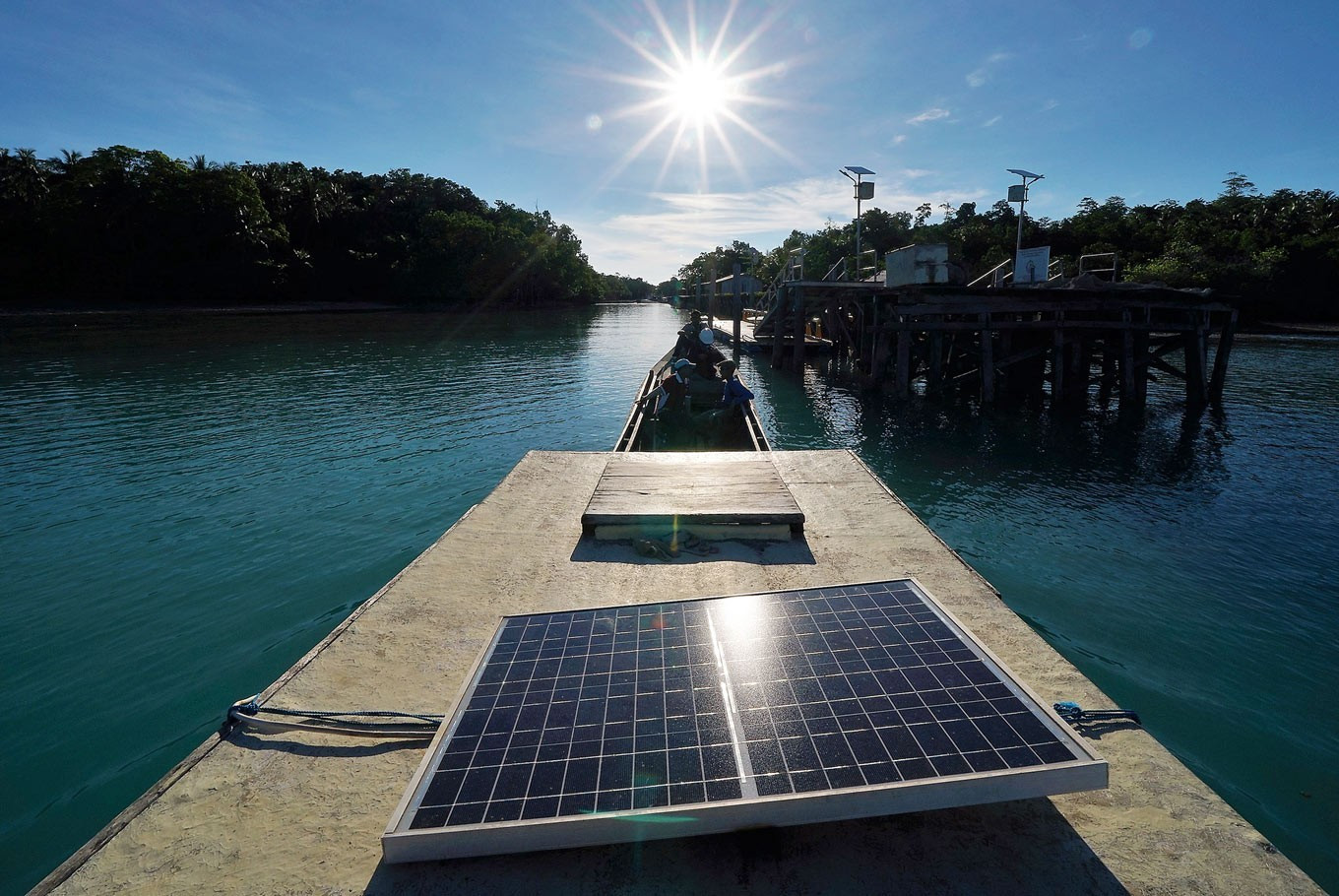News
Indonesia RE export plan with Singapore, is PLN out?
Tenggara Strategics June 24, 2025 Useful heat: Fishermen use a solar power cooling system in Maratua, Berau and East Kalimantan. (JP/Syafrizaldi)
Useful heat: Fishermen use a solar power cooling system in Maratua, Berau and East Kalimantan. (JP/Syafrizaldi)
After years of anticipation, Indonesia and Singapore have officially signed a memorandum of understanding (MoU) for renewable electricity exports. Energy and Mineral Resources Minister Bahlil Lahadalia and Singapore’s Minister for Trade and Industry Tan See Leng on June 13 finalized the agreement, which will see Indonesia supplying up to 3.5 gigawatts of renewable energy to Singapore through 2035. However, in a notable twist, Bahlil announced that state electricity company PLN would not be involved in the deal.
The announcement comes just weeks after the release of PLN’s 2025–2034 electricity procurement business plan (RUPTL), which outlines the company’s target of adding 69 GW of power generation capacity over the next decade. Minister Bahlil cited this domestic commitment as a constraint, saying it would be difficult for PLN to participate in the export project given its national obligations.
The deal has faced delays, reportedly due in part to PLN’s prior involvement. In September 2024, Singapore’s Energy Market Authority (EMA) issued conditional approvals for several Indonesian-led projects to export renewable electricity. These projects, led by Pacific Medco Solar Energy, Adaro Solar International, EDP Renewables APAC, Vanda RE and Keppel Energy, awaited a framework for cross-border transmission.
However, transmission remained a bottleneck as PLN holds operational control over Indonesia’s cross-border grid infrastructure. Using PLN’s transmission network would have subjected exported electricity to PLN’s pricing, which is constitutionally regulated and lower than Singapore’s market rate, undermining the commercial viability of the projects. Behind-the-scenes negotiations have reportedly focused on decoupling export pricing from PLN’s structure to enable viable energy trading.
The agreement’s signing is seen as a landmark moment for Indonesia’s renewable energy sector, which has long struggled to expand due to regulatory inflexibilities. Under existing rules, after a business is granted an Electricity Supply Business License (IUPTL), it can only do business in a specified business area that is designated together with the IUPTL.
This creates a significant hurdle for renewable energy production, which is limited to a select number of regions and is commonly far away from industrial and urban regions. Theoretically, electricity could be sold across regions, but this scheme would require the use of PLN’s transmission grids, which would then become subject to PLN’s rigid rules.
These restrictions are exempt in the case of exported electricity. This is because exported electricity is not directly regulated under Law No. 30/2009, which treats electricity as a public good. Rather, exported electricity uses Government Regulation (PP) No. 42/2012 on the cross-border electricity trade. Under the PP, any owner of an IUPTL can apply for an export license, regardless of business area, and the price of the electricity is determined by an agreement between the producer and the importing party. With PLN no longer involved in exporting renewable energy, the export market is seen as a new frontier for Indonesia’s renewable energy producers.
PLN’s exclusion from the export framework is also linked to broader regional policy shifts. Singapore has recently reinstated a moratorium on the construction of new data centers for the purpose of limiting the country’s electricity consumption. This move has prompted Indonesia to position itself as an alternative host for data center investment. According to the RUPTL 2025–2034, PLN will prioritize domestic electricity expansion to serve these upcoming high-energy-use facilities, aligning national utility focus with emerging digital infrastructure trends.
What we've heard
Electricity sector players told us that the MoU between Bahlil and Singapore’s Minister for Trade and Industry, Tan See Leng, strengthens Singapore’s position to obtain electricity from Indonesia on several levels.

